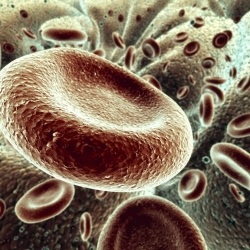
During his lecture at Singularity University, Hillis explained how scientific medicine is beginning to revert back to more ancient, Ayurvedic principles about health and wellbeing. The basic idea is to treat the body as a system, where balance is the foundation for good health and imbalance the harbinger of disease and sickness. With advancements in proteomics and computing, we can begin creating models of what a healthy bodily state looks like. In the same way we might use environmental models to analyze the global climate, we can isolate specific variables that can inform the larger picture.
As the data piles up, preventative medicine will become a quantitative endeavor. Hillis believes the doctors visit of the future will be a simple blood test that measures proteins, lipids and some other key signals, which will then be plugged into a systematic database to help us treat diseases long before any symptoms arise. It is a huge upgrade in efficiency, and its effects could save millions of lives and alleviate the indebted healthcare system in the process.
Hillis compared the differing insights we can gain from proteomics and genomics. Genes are like ingredients, he says, and can help us tell the difference between different organisms based on their various coding of As, Gs, Ts, and Cs. We can read them, write them, and manipulate them, but so far there has not been much in the way personalizing medicine and treatments for specific genetic sequences. Proteomics, on the other hand, is much more dynamic than the stable DNA strings at the heart of genomics. The machine he’s creating in his lab at USC can take a drop of blood and analyze the proteins, which can then tell you whether you had “bacon or eggs for breakfast”, whether you had enough sleep last night, and even what kind of mood you’re in. This type of feedback can then be aggregated and analyzed to help inform our lifestyle and habits, decipher specific environmental effects, and further bolster preventative medicine treatments.
